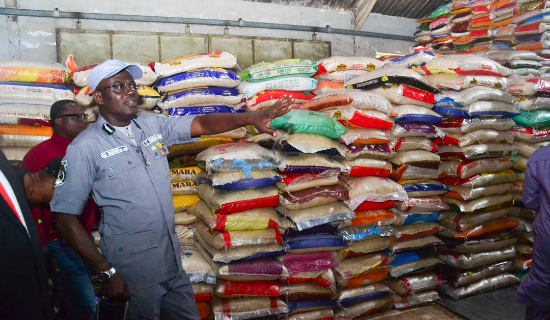In a laudable move reflecting a commitment to community welfare, the Customs Department has announced its decision to initiate the distribution of seized food items to various communities. This groundbreaking development not only addresses concerns about food waste but also demonstrates a compassionate approach to utilizing seized goods for the greater good.
**Turning Seizures into Solutions: A Holistic Approach**
Traditionally, seized items, including food products, have been disposed of through various means, often leading to wastage. However, the Customs Department’s decision to redirect seized food items towards community distribution signifies a shift towards a more holistic and socially responsible approach.
The initiative aims to repurpose seized goods to benefit local communities facing economic challenges. By distributing these items, the Customs Department is not only fulfilling its regulatory role but also contributing to social welfare, particularly in times of economic uncertainty.

**Addressing Food Insecurity: A Timely Intervention**
The decision comes at a time when many communities are grappling with food insecurity, exacerbated by factors such as economic downturns and the ongoing global challenges. By redirecting seized food items to those in need, the Customs Department is actively participating in efforts to alleviate hunger and support vulnerable populations.
This initiative aligns with broader global movements that emphasize the importance of sustainable practices and responsible resource management. Instead of allowing seized goods to go to waste, the Customs Department is turning them into a valuable resource for communities facing food shortages.
**Transparent and Accountable Distribution Process**
To ensure the fair and equitable distribution of seized food items, the Customs Department has outlined a transparent and accountable process. Community leaders, NGOs, and local authorities will collaborate in identifying and prioritizing areas with the greatest need. This collaborative approach aims to address concerns about potential mismanagement and ensures that the benefits reach those who need them the most.
The Customs Department has also expressed its commitment to regularly update the public on the progress of the distribution initiative. Transparent communication will play a pivotal role in building trust and fostering a sense of community engagement in this commendable effort.
**Collaboration with Nonprofit Organizations**
In addition to working directly with communities, the Customs Department is exploring partnerships with nonprofit organizations experienced in humanitarian efforts. These collaborations will further enhance the reach and impact of the distribution initiative, leveraging the expertise and networks of established organizations to ensure effective and efficient delivery of seized food items to those in need.
This collaborative approach underscores the importance of public-private partnerships in addressing social challenges. By teaming up with nonprofits, the Customs Department is tapping into a wealth of experience and resources that can enhance the overall success of the initiative.
**A Model for Responsible Governance**
The Customs Department’s decision to distribute seized food items serves as a model for responsible governance and adaptive policymaking. It reflects a commitment to reevaluate traditional practices and seek innovative solutions that benefit both regulatory objectives and societal well-being.
As the initiative unfolds, it provides an opportunity for other government agencies to reconsider their approaches to seized goods. By adopting a more community-centric mindset, authorities can contribute to the creation of a more sustainable and compassionate society.
**Conclusion: A Compassionate Approach to Governance**
The Customs Department’s initiative to distribute seized food items is a testament to the potential impact of compassionate governance. This forward-thinking approach not only addresses immediate concerns related to food insecurity but also sets a positive precedent for the responsible management of seized goods.
As communities eagerly await the positive effects of this initiative, it serves as a reminder that government agencies play a crucial role not only in enforcing regulations but also in actively contributing to the well-being of the citizens they serve. The Customs Department’s commitment to turning seized items into a force for good exemplifies the transformative power of governance that prioritizes the needs of the people.
Support InfoStride News' Credible Journalism: Only credible journalism can guarantee a fair, accountable and transparent society, including democracy and government. It involves a lot of efforts and money. We need your support. Click here to Donate
